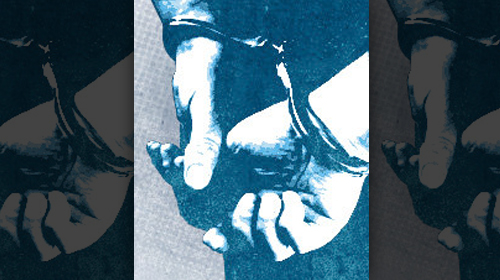
For the past two years, the ACLU and the Southern Poverty Law Center have been investigating and exposing a horrifying pattern of abuse against juveniles and the mentally ill in two Mississippi prisons operated by the GEO Group, one of the biggest for-profit prison operators in the world.
Recently, we got some good news and some bad news.
The good: the Mississippi Department of Corrections has ended its contract with GEO.
The bad: the Department has announced that it is looking for another for-profit prison contractor to run the three state prisons formerly run by GEO.
It is all too predictable that merely replacing one greedy for-profit prison contractor with another will only prolong the crisis in some of Mississippi's most brutal prisons.
There's no question that GEO has been a bad actor in Mississippi, and richly deserves to be ousted: only last month, a federal judge found that GEO's operation of the Walnut Grove Youth Correctional Facility, which incarcerates teenagers as young as 13, has created "a picture of such horror as should be unrealized anywhere in the civilized world," including a pattern of sexual abuse and severe beatings. The judge also excoriated the Mississippi Department of Corrections for failing to monitor and halt GEO's abuses.
And teenagers aren't the only incarcerated population facing abuse in GEO's Mississippi facilities. At East Mississippi Correctional Facility, the state's only prison for those who need treatment for mental illness, the ACLU and SPLC have collected massive evidence that GEO has been starving the mentally ill prisoners, denying them basic mental health care, punishing them with solitary confinement, and exposing them to such systemic abuse and neglect that suicides and suicide attempts are rampant.
But there is no reason whatsoever to believe that the situation will be improved by replacing GEO with a different prison profiteer. In fact, two other big private prison contractors — Corrections Corporation of America and Wexford — are already operating the medical and mental health systems in some Mississippi prisons, and the Department of Corrections is well aware that those private contractors are providing abysmal care to prisoners with serious medical and mental health needs. The ACLU has painstakingly documented Wexford and CCA's gross lack of regard for prisoner health; MDOC has long been on notice of these deficiencies, some of which have resulted in deaths.
The root of the problem: all for-profit prison corporations are in the very business of generating the greatest possible profits, by any means necessary. Providing safe and humane conditions of confinement to the human beings in their custody is — at best — a distant secondary goal. The private prison industry has been a key player over the past two decades in driving the explosion of mass incarceration in the U.S. Families, communities and state and local government have suffered terribly from the mass incarceration binge; the only clear winner is the private prison industry and its stockholders, making billions in revenues.
GEO's chairman and CEO claimed that it was backing out of the Mississippi contract because EMCF was "financially underperforming;" GEO said it had expected the contract to generate about $21.7 million in annual revenue. Evidently, even starving mentally ill prisoners — an ACLU medical expert documented case after case of inmates losing upwards of 10 and as many as 30 pounds after a few months in GEO custody — did not make the contract adequately profitable. The next for-profit corporation that gets the contract will have no more incentive than GEO to provide adequate security staffing, medical and mental health care, nutrition, or decently safe sanitary housing — if it can figure out a way to squeeze more profit out of the prisoners by cutting per-capita expenditures.
Private prisons are the problem, not the solution. Mississippi should throw out the prison profiteers for good, and take responsibility for providing decent treatment to the men, women and children it chooses to incarcerate.
Learn more about private prisons: Sign up for breaking news alerts, follow us on Twitter, and like us on Facebook.

